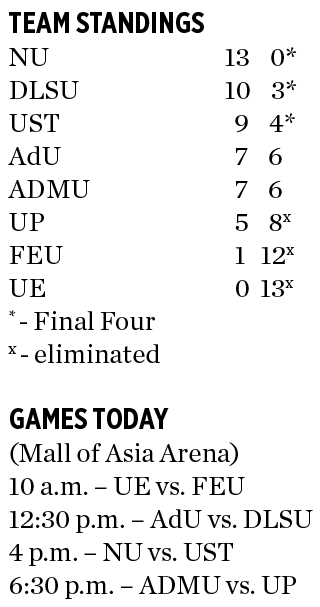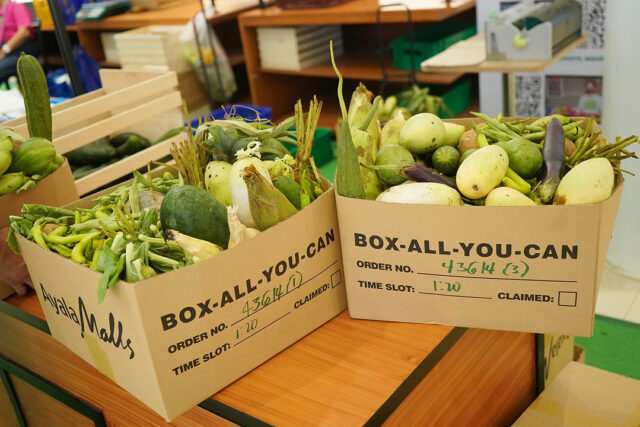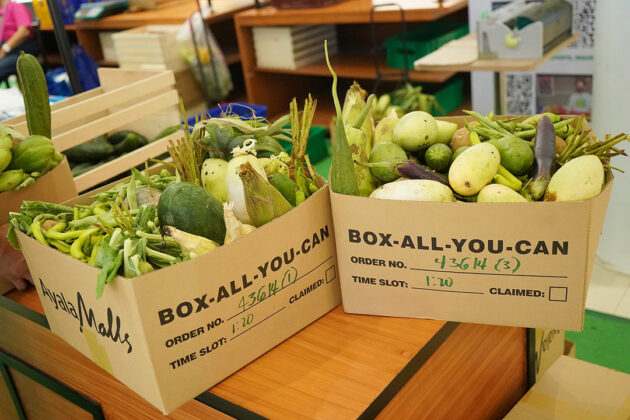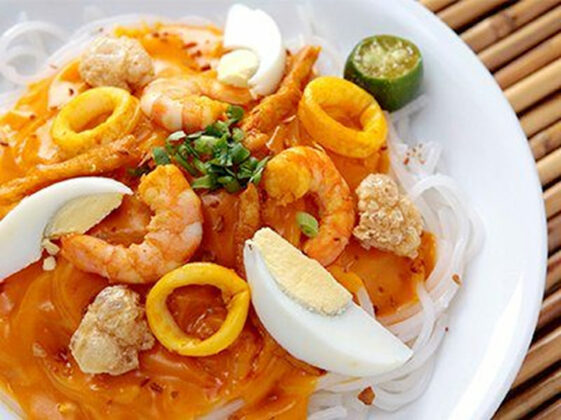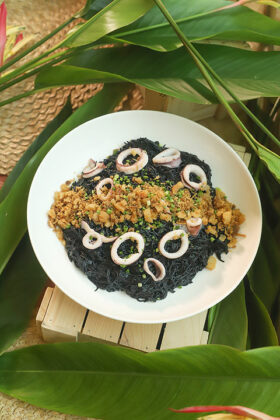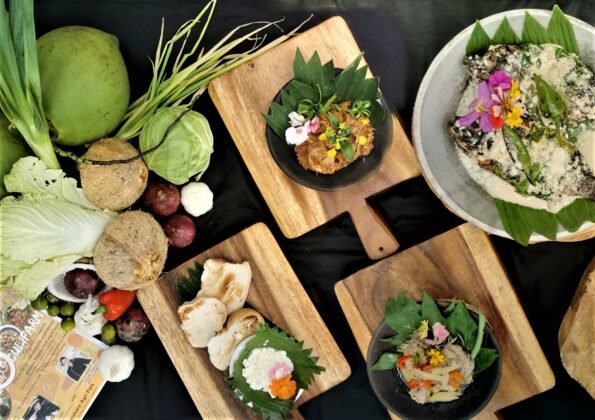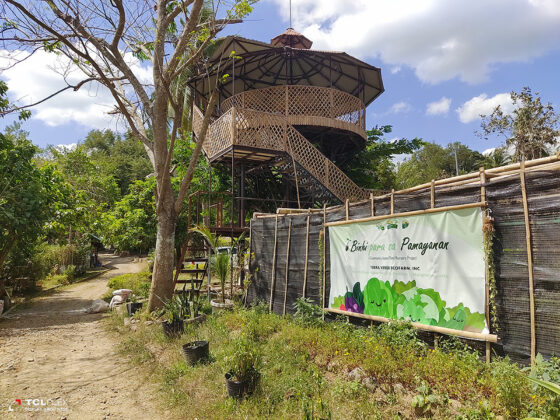When the ingredients are harder to get, what is a restaurant to do?
Keeping nimble and having deeper pockets will help food outlets survive
By Joseph L. Garcia, Reporter
SOME food outlets have been announcing shortages of certain items. Mary Grace Cafe announced on a Facebook post in May that “getting your hands on a box or two of your favorite Mary Grace Ensaymadas,” would now be difficult. “Unfortunately, we’re experiencing some global supply issues on a few raw materials, beyond our control.”
Small food chains are not the only ones having problems these days. Even international players have similar issues. On the same day that Mary Grace Cafe posted about its woes, so did LA favorite Randy’s Donuts, which had just opened its BGC branch earlier this year. “Sorry. We ran out of flour before we ran out of queues.” Meanwhile, in a Facebook post from April, McDonald’s Philippines announced: “The supply of our World Famous Fries is limited because of the global freight crisis… all stores will still continue to serve regular fries for your enjoyment.”
FEWER FRIES: FREIGHT ISSUES AND LOCKDOWNS
Adi Hernandez, Corporate Relations Director at McDonald’s Philippines, said in an e-mail to BusinessWorld last week: “The shortage of potato supply due to the global freight crisis is affecting not just McDonald’s in the Philippines, but McDonald’s in other markets.” To better manage their supply and ensure that customers can still enjoy their fries, Ms. Hernandez said, “We temporarily stopped serving our medium and large fries sizes. Our BFF fries size is also available for delivery. We only serve fries that adhere to McDonald’s global quality standards — from where we source our potatoes to how they are prepared and served.”
“Due to the on-going global freight crisis, there is no clarity as to when importation of our fries will normalize,” she said. In the meantime, she said, “We also offer our customers a free swap of fries with our value meals for apple pie or sundae.”
McDonald’s Philippines also attached a letter they had sent Department of Agriculture (DA) Secretary William Dar, which highlighted more reasons for this potato supply chain issue.
The problem, said Margot Torres, Managing Director for Golden Arches Development Corp. which holds the license for McDonald’s in the Philippines, in the letter to Mr. Dar, is not a lack of the kind of potatoes they use — the Russet variety, which they import from the United States, New Zealand, Australia, and China — but how to get them where they have to go.
“Over the past few months, we have been experiencing a delay in the importation of our fries due to the global freight crisis and not the lack of this specific variety of potatoes,” she explained. “It has resulted to us needing to temporarily delist our larger fries sizes to manage inventory so we can still serve our customer fries, even at a limited capacity.”
In the letter, the following factors were given for the importation delays: a “lack of containers, equipment and trucks as global demand increases with economies opening”; the “strict pandemic lockdowns in China which resulted to a bottleneck being a major trading hub”; a “lack of truck drivers in exporting countries due to the same lockdown restrictions,” and “impending labor union strikes in the United States.”
“We are closely working with our global supply chain partners and look forward to the resolution of our fries importation challenges,” the letter said. “We have yet to find clarity as to when importation levels of our fries can be normalized given the worsening of the global freight crisis driven by several factors.”
RUSSIA-UKRAINE WAR LEADS TO BREAD PROBLEMS
As for the flour issue, Chito Chavez, former spokesperson and Vice-President of the Philippine Federation of Bakers, as well as founder of Tinapayan Festival bakeshop, said that one of the problems that their industry faced during the pandemic were their repeated closing and reopening, subject to pandemic restrictions. Then there was the cost of ingredients. “Nagtaasan naman ang mga raw materials (the prices of our raw materials increased).”
A BusinessWorld story on June 7 noted that bakers are struggling to keep prices of bread and pastries low amid the spike in flour prices caused by the Russia-Ukraine war and disruptions in the global supply of wheat.
Several bakery told BusinessWorld that prices of flour, depending on the quality, had gone up by around 20% to nearly 50% in recent months.
“Ang Ukraine, is a producer ng trigo sa buong mundo na pinakamalaki (Ukraine is one of the world’s biggest wheat producers). Kahit na hindi tayo kumukuha sa Ukraine ng harina, kung siya’y naapektukan, nagkakaepekto sa worldwide supply ng harina (Even if we don’t get our flour from Ukraine, if it’s affected, it affects the worldwide supply of flour),” said Mr. Chavez during a phone interview last week.
The Philippines is a major importer of milling-quality wheat, as it has no commercial production of wheat. It mainly imports wheat from the United States, Australia and Canada, says the story.
While Mr. Chavez said that there isn’t a flour shortage supply yet, “Hindi natin puwedeng alisin ang pangamba na magkaroon ng shortage. So far, wala pang shortage ang industriya ng tinapay, lalo na sa harina. Wala pa naman. (We can’t eliminate the fear that there will be a shortage. So far there isn’t a shortage in the bread industry, especially of flour. Not yet.)” But, he says that as a bakery operator, he has to constantly monitor his stock — as well as that of his supplier.
INVEST IN FOOD SECURITY
During the launch of a Filipino food festival at the Diamond Hotel, celebrity Chef Myke “Tatung” Sarthou also admitted his own supply chain woes. “Yes, a bit,” he said when asked if he had a hard time sourcing ingredients for his restaurants. This he blames on a food security issue in the country, exacerbated by the quarantine restrictions of the past two years of the pandemic.
“We’re very dependent on foreign supply,” he said. “Potatoes… it’s everything.” He points out that several of the staples in the Philippines are “all imported.” This includes rice, fish, sugar, and vegetables, he said. All those products are produced locally but not in the quantities required to fulfill demand, thus the need for imports.
“Imagine a longer quarantine period where international trade is stuck. Gutom tayong lahat (we’ll all go hungry),” said the chef.
“I don’t think it’s just about restaurants. The global food shortage is something very real. Unless we really look into local food production, and really invest in (this), the time will come that we will run out of things to buy,” he said in a mixture of Tagalog and English.
Tinapayan Festival’s Mr. Chavez believes the same. Some of his products use local crops like camote (sweet potato), carrots, and ube (purple yam), which he says can constitute as much as 20% of bread. As well, he pushes for the development of copra oil for mainstream use. “Ang kanilang tinanim, mabibili na sa bakery (What they plant, the bakery can buy),” he said. In this way, by bolstering the local bread industry with local crops, we can reduce reliance on imported wheat. “At least may food sustainability. Hindi tayo asa nang asa sa imported (We won’t have to depend on imports.”
NOW WHAT?
In the meantime, what can restaurants and other food outlets do in the face of dwindling supplies?
Adolf Aran, a food business coach to SMEs, gave a list of short-term solutions, as we wait for things to unfold.
“Menu re-engineering is a practice that’s done by restaurants in good times and in bad times. In bad times, particularly during raw materials shortage, creativity on substitution of raw materials becomes extremely necessary. Tenderloin is replaced by sirloin. Baby back ribs can be replaced by spare ribs. Chicken cut into six pieces is cut into eight pieces with a unique way of preserving meat to bone ratio. Will quality suffer? That’s when cooking techniques are relearned, and marketing plays a major role in pushing certain proteins, instead of the popular ones,” he said.
“With the looming food shortage, shifts on center of the plate are necessary,” he said. He cited a specific case: “A seafood restaurant painstakingly learned it the hard way when, during the height of a drought, crabs and other shellfish were extremely hard to come by. Fortunately, the menu was reinvented in such an way that other proteins are given the spotlight.”
On that note, he also gave tips to restaurateurs on how to save during these times.
“A certain amount of planning and an attitude of expect(ing) the unexpected will do the trick. Some concepts had to abandon certain established businesses because they no longer enjoy the same profit margin. Some food businesses invested and vertically integrated to have a certain level of stability on farm supplies. Some had to invest in walk-in chillers to extend inventory levels,” he said.
“Embracing uncertainty and disruption is already a way of life. Once the restaurant industry players accept this unpredictability, then there would be less resistance to change, be it in menu, operations, customer expectations, selling price points, and profit margins,” he said.
“No one can prevent the industry from similar shocks in the future. However, there are so many ways to prepare oneself from future crises. It just takes an openness to doing things differently, and it starts with an agile mindset.
“And deeper pockets for the long haul, of course,” he added.





